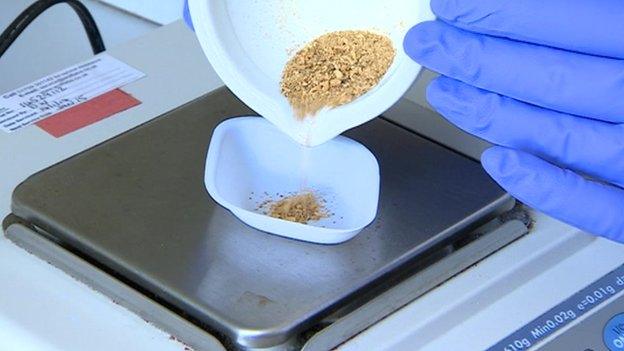Scientists hope caterpillar fungus will fight arthritis pain
- Published

The fungus is used as a traditional medicine in China and is also added to chicken soup as a tonic
Scientists are studying the properties of a mushroom that grows on caterpillars to see if it can be used as a painkiller for people with arthritis.
Derbyshire-based Arthritis Research UK is funding a £260,000 research study at the University of Nottingham.
The cordiceps fungus is cultivated in China where it is used as a traditional medicine.
An estimated eight million people in the UK are affected by osteoarthritis.
Long shot
The researchers are giving the mushroom as food pellets to rats and mice to find out if cordycepin can prevent pain.
Lead researcher Dr Cornelia de Moor said: "When we first started investigating this compound it was frankly a bit of a long shot and there was much scepticism from the scientific community.

The mushroom is given to rats to see if it can alleviate pain in joints
"But we were stunned by the response from the pilot study, which showed that it was as effective as conventional painkillers in rats.
"To the best of our knowledge, cordycepin has never been tested as a lead compound for osteoarthritis pain."
Dr de Moor said if the safety and effectiveness of the compound could be proven, clinical trials could begin within six to 10 years.
Cordycepin blocks the inflammatory process that causes pain in osteoarthritis in a different way and at a different stage to existing painkillers such as ibuprofen, she added.
She warned people not to try using cordyceps until more is known about the compound.
Arthritis Research UK spokesman Stephen Simpson, said: "Dr de Moor's research is certainly novel, and we believe may hold promise as a future source of pain relief for people with osteoarthritis.
"There is currently a massive gap in available, effective, side-effect-free painkillers for the millions of people with arthritis."
- Published31 December 2012
